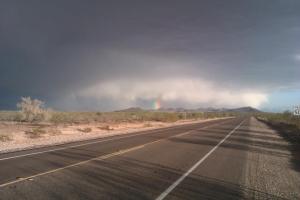 Clergy burn-out rates are at an all-time high. All sorts of seminaries and foundations are devoting studies to the topic, trying to learn why the life of ministry seems to be growing less and less sustainable.
Clergy burn-out rates are at an all-time high. All sorts of seminaries and foundations are devoting studies to the topic, trying to learn why the life of ministry seems to be growing less and less sustainable.
I’m grateful that these studies exist, though i don’t think there’s an easy answer–or one that applies in every situation. I think that each pastor’s personality contributes to how they approach ministry; and each congregation’s personality contributes to how they treat their pastor. So there’s that… Add to those factors the general strain of being in a ‘caring profession,’ (ask anyone who’s a teacher, counselor, nurse, mental health professional, etc…); along with the residual ‘image’ issues if you are anything but the traditional clergy prototype; and the financial strains that often come with following Jesus for a living, and well…you might begin to glimpse the equations that lead talented preachers to seek a job at the bank.
There’s no shame in it. But I’d like to see fewer of my colleagues become this sort of statistic. Ergo, my theory: whatever other factors might contribute to a minister’s stress–be they internal or external–there is one glaring stressor that i’ve never seen a study about, and i think it is the one that sits most heavily on my head, on any given day:
We are called to manage an institution that, as much as we love it, is dying. That is, “Church,” with a big C–the way we’ve done and known it–we know it’s not long for this world.
And so, while we went to seminary because we wanted to preach and teach and serve the poor, we find ourselves becoming, essentially, the caretakers of dying traditions. And the CEO’s of mysterious and evolving organizations. There’s no road map for how to ‘do’ church in the 21st century; how to ‘sell’ church to people who aren’t buying; how to preserve, with authentic dignity, the best practices of faith in community, while letting go the things that tie us to the past.
The strain of this tightrope walk–combined with the fact that so many of us do not even realize this is what our job has become–is what, ultimately, becomes the deal breaker for many clergy. There was no class for this in divinity school. There is no reality show that follows the lives of pastors and their evolving congregations, to show that it can be done. (Although my friend Amy met a girl on a plane once who worked for Universal, and was totally intrigued by the whole business). There is no one up ahead shining the light for us and saying, ‘hey, if you follow this particular path, there will still be a relevant Christian community 100 years from now. Just get off the next exit and turn left, you can’t miss it!” No, we are winging it. Every one of us, even on our best days.
Call me crazy, but isn’t that half the fun?
I might not have realized ten+ years ago that my chosen career path that didn’t come with a road map. But once I realized there wasn’t one, I realized that nobody else had a map, either. And that sort of made everything easier. It might mean stepping out with no map and no plan, but it also means having confidence in the fact that others are moving through this fog with me; and that the journey is more important than where we wind up.
This, I think, is the key to survival in pastoral life–awareness that, while we don’t really have a ‘plan,’ the answers are not our job. Maybe it is just our job to ask the hard questions, and trust God with the details. To step out in faith, and believe that other people will come with us, as they are ready.
And also, to step out of the spaces that drain us, and refuel on the things that led us into this calling to begin with. For my money, the most stressful part of ministry is holding all the pieces in my head. All. the. time. Those pieces are always with me, but most present when i’m in my office. Most days, I make some sermon notes; i send a BUNCH of emails and facebook messages, reminding people of their turn to serve somewhere, or inviting them to an event, or connecting with people i haven’t seen in awhile; i think about the money; and then i try to raise some more; then i might write a blog post; i might field some crazy phone calls; I might spend some time with the Young Jedi who (Lord help him) is supposed to be learning something from me; all these things are blessed and important and fulfilling. But as long as i am in this particular space, I am also living with a certain kind of urgency that if i miss something, the church will die. Maybe not just THIS church, but every church ever.
I know that is crazy and utterly untrue. But it is my special brand of crazy, and I bet if you ask some other ministers you know, they live with that same little voice in their heads. For some of us, that voice is a silent killer. For others (like me), it is quite possibly the urging of the Spirit, and it keeps us moving toward promising, though dimly lit futures.
In any case, my best attempt at self care is to spend at least part of my work week out of this space, and out in the world. This morning, for instance: i made some house calls. I prayed with the elderly. I took bread. (No, i did not bake it myself. Thanks for giving me that kind of credit, though). I did something nice for some people in need. I called on a stranger in the hospital. I went to lunch with someone who is new to the church.
These are small things. But they are the things I always thought ministry would be about, back when i didn’t know anything about anything. While the day to day running and holding on brings its own kind of blessing, I’m reminded, as often as i eat and drink, that real faith comes to life beyond my office (beyond your office, too), beyond the sanctuary, beyond the sermon notes, beyond the ringing phone and the non-existent road map i feel the need to carry in my purse. As often as I do this: I remember something really important. And somehow, by the grace of God and absolutely no doing of my own, I find the next step on the (non-existent) map, and i take it. Hoping for the best, and believing that I’m not alone.












